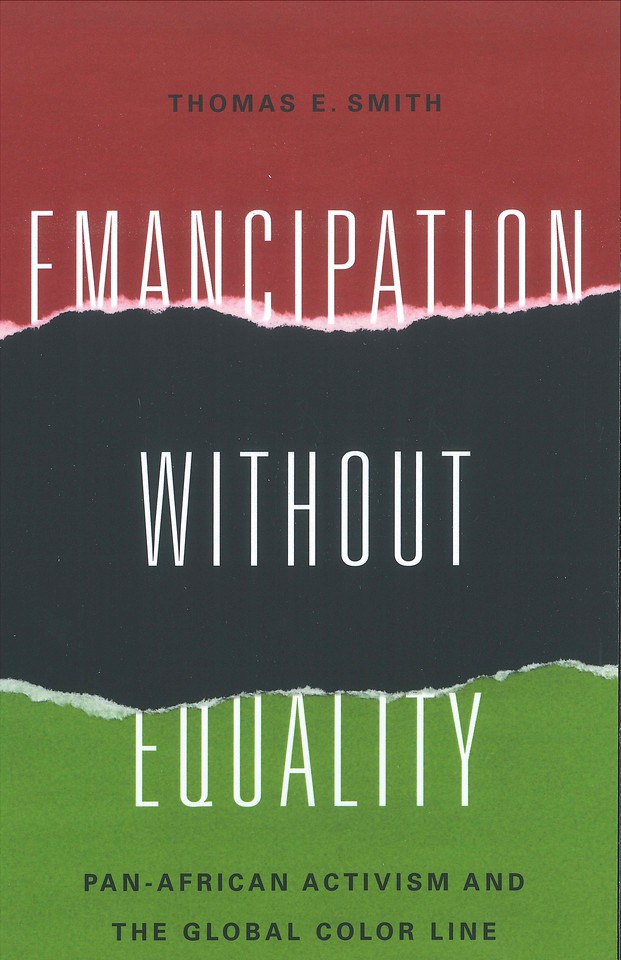History professor's book provides insight on Pan-African movement

CHADRON – The beginnings of the Pan-African movement at the turn of the 20th Century and the activists of African descent who fought globally for equal treatment and citizenship rights in the face of European imperialist rule over most of the African continent comprise the subject of a recently released book by Chadron State College Associate Professor Dr. Tom Smith.
And, while the topic is distant in time and place from the high plains of Nebraska, the issues raised by early Pan-African leaders are still relevant today, according to Smith, who is in his eighth year of teaching at CSC.
Although the intellectuals involved in the early movement challenging European domination of Africa and its peoples were cutting through the once-common idea of skin color as a primary determinant of behavior, such beliefs persist more than a century later, said Smith.
“It’s a messy area of race that hasn’t ever been straightened out,” he said. “It’s still with us today.”
Smith’s book, “Emancipation without Equality; Pan-African Activism and the Global Color Line,” was published by the University of Massachusetts Press in October. The book is the product of more than six years of work.
The topic has interested Smith since graduate school at the University of Nebraska-Lincoln when he learned about the life and work of Ida B. Wells, a 19th-Century African-American journalist and public speaker. Wells wrote a book about lynching in the American South following the Civil War and raised awareness of the issue through speaking tours of England in 1893 and 1894. “She was very understudied,” Smith said.
Her tours took place a decade after the Berlin Conference, the event that forms the starting point of Smith’s book. That multi-nation meeting formalized European nations’ rules for colonizing Africa and led to eliminating or overriding most of the autonomous forms of African self governance.
Tracing the growing recognition that the outlawing of slavery in Britain in 1833 and in America during the Civil War had failed to gain equal rights of citizenship for people of African descent, the book also examines the significance of the 1900 Pan African Conference. That’s where W.E.B. DuBois said “the problem of the twentieth century would be the global color line” that put white skinned people above others and created a racially divided world.
Smith’s book concludes with the 1911 Universal Races Congress, where people like pioneering anthropologist Franz Boas and others raised questions about the scientific racism of the times and the idea of a Euro-American civilizing mission in Africa.
While many historians have advanced the idea of Pan-Africanism as a post-colonial movement with origins in the 1919 Pan-African Congress, Smith said his book shows that its roots are earlier.
“My work argues that this idea of a unified Africa, in terms of a political and cultural identity, is in place by the turn of the 20th century,” he said. “There is a concept that internationally links these voices into kind of a trans-Atlantic world.”
Research for the book took Smith to Oxford, England, for a summer, where he was able to access original documents from the conferences he studied and to a special institute of the New York Public Library that focuses on racial issues. Suggestions received from an anonymous reader of the initial manuscript were critical in bringing the book to fruition, said Smith. “Without that I don’t know if I would have gotten it done,” he said. “These kind of projects are really indebted to a lot of other scholarship and other scholars.”
The book isn’t just aimed at historians who study the Pan-African movements, according to Smith.
“I hope it interests people who want to know about this timeframe, about Pan-Africanism, about reform movements,” he said. “These issues are not just for historians. They have applicability outside the historical focus.”
Smith said he hasn’t yet considered writing another book, but is reading a lot to decide what area of history he wants to pursue next.
“I think it will be Atlantic world history at some level,” he said. “I would like to do something more explicitly on sub-Saharan Africa.”
That’s another topic far from rural Nebraska, but the internet has opened access to historical documents that once could only be viewed in university or library collections, said Smith.
“You would be amazed how Google books and digitizing the past has transformed the historian’s craft,” he said. “The stuff I had from archives that wasn’t really catalogued 10 years ago, now I can pull right up here.”
And that’s a good thing for everyone, not just historians, according to Smith.
“It’s good for the general opening of knowledge,” he said. “It has made the past more accessible to everybody.”
Category: Campus News
